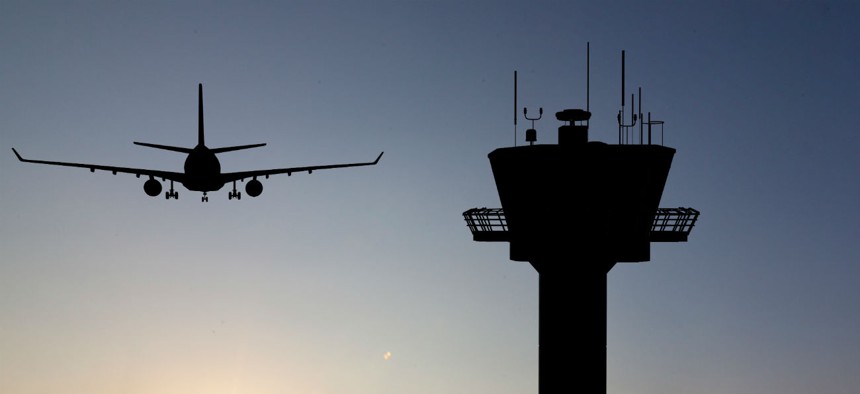
By ersin ergin / Shutterstock.com
OSC Alerts White House and Congress of Whistleblower Disclosures About Hazardous Air Traffic Control Procedures
The independent agency substantiated claims of risky procedures in Florida.
Following a whistleblower complaint, the Office of Special Counsel alerted the White House and Congress on Wednesday of dangerous air traffic control procedures that the Federal Aviation Administration has failed to remedy.
The OSC investigated and then substantiated an air traffic control specialist’s complaint that air traffic controllers at the Jacksonville Air Route Traffic Control Center in Hilliard, Florida, were not complying with FAA rules on transferring aircrafts from one airspace sector to another. Instead of addressing the noncompliance, managers changed the standard operating procedure in February 2018. This move could result in dangerous conditions, according to OSC.
The change in operating procedure is dangerous because aircraft are moved very close to each other at the same altitude, which gives controllers little leeway and time to act and prevent midair collisions, according to OSC.
“Despite being alerted to these troubling findings, FAA management has failed to take appropriate corrective action," Special Counsel Henry Kerner said in a press release. “The Safety Risk Management process is not merely an exercise in completing forms. It involves a critical safety analysis to identify and mitigate hazards posed by air traffic procedures. Every supervisor and controller interviewed by FAA stated that the [standard operating procedure] change is hazardous or introduces risk, yet FAA continues to use these procedures without modification.”
OSC said the FAA did substantiate the allegations in a September 2018 report and issued recommendations on how to change the air control procedures. “FAA found multiple instances in which controllers did not comply with coordination rules during the transfer of aircraft from one sector to another, and management failed to appropriately document these events or take action to address controller performances,” OSC wrote to the White House. “All employees interviewed by FAA stated there was a ‘culture of noncompliance with certain elements of required coordination.’ ”
However, FAA reported to OSC in August that the Jacksonville control center has still not modified its February 2018 standard operating procedure and believes the 2018 procedure does not change the current hazard level. “The supplemental report does not explain the discrepancy between the [Jacksonville Air Route Traffic Control Center's] determination and FAA's findings and conclusion that the [procedural] change creates hazardous air traffic conditions,” Kerner wrote.
Although the whistleblower was pleased that his or her allegation was investigated and substantiated, he or she is “gravely disappointed” in the lack of progress, according to OSC. The office urged the FAA to take corrective action immediately.
The FAA told Government Executive in a statement: “The procedures in use today at the Jacksonville Air Route Traffic Control Center are consistent with those in place at facilities throughout the National Airspace System and comply with all FAA altitude separation standards.The FAA is reviewing the conclusions of the Office of Special Counsel and will address each finding in detail.”
Update: This story has been updated with a more detailed statement from FAA.







